Can Dogs Eat Red Peppers?
Hey there, fellow fur buddy parent! Ever found yourself munching on crunchy red bell pepper and your pooch giving you “the look”? You know, that irresistible, “Can I have some, pretty please?” kind of look. Well, with red bell peppers, you’re in luck!
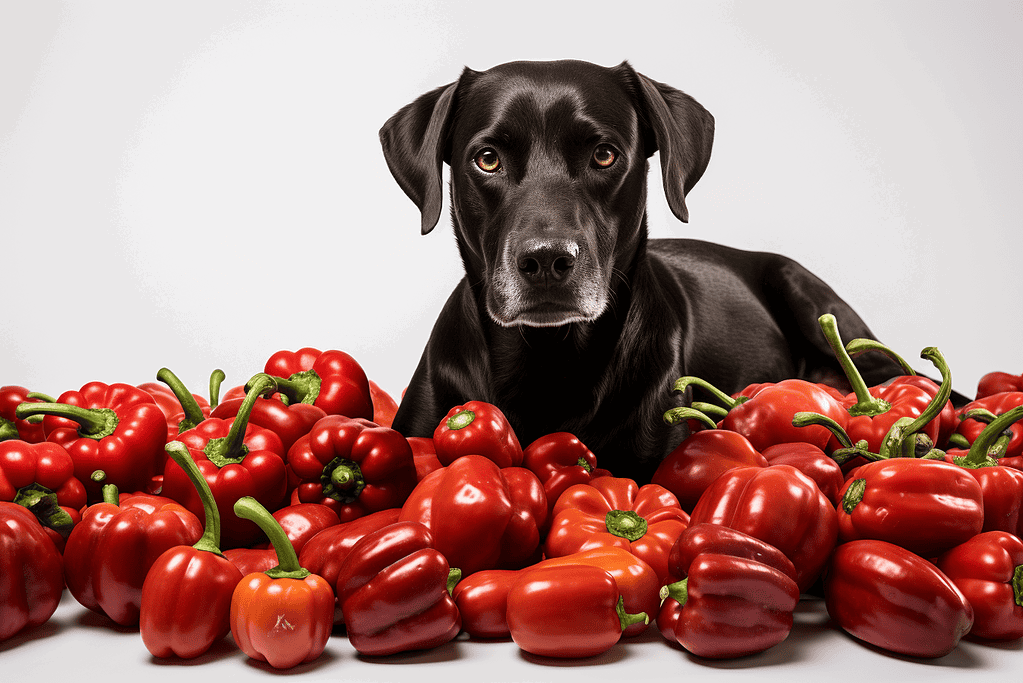
Not only do red bell peppers offer your dogs crucial nutrients, but they can also do a little health magic if you know what I mean. But before you go all in and declare a red pepper fiesta, remember moderation is key.
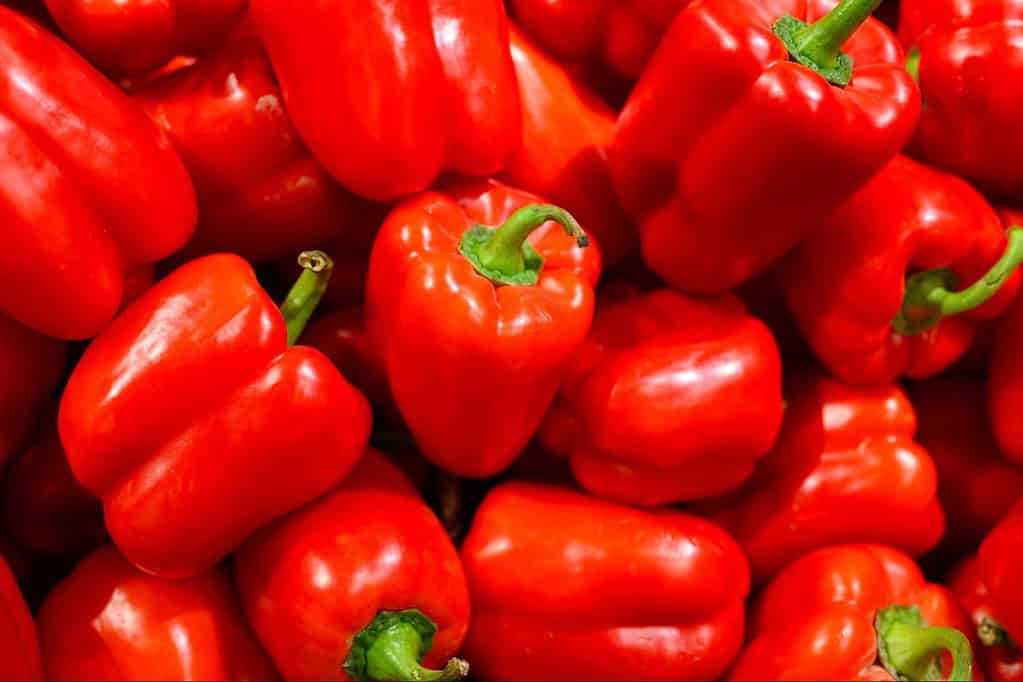
In the excitement of serving up this new foodie venture, don’t forget that some dogs might react a bit differently to red peppers. No two dogs are the same, so watch out for any side effects, they’re fairly rare when it comes to peppers, but best to err on the side of caution.
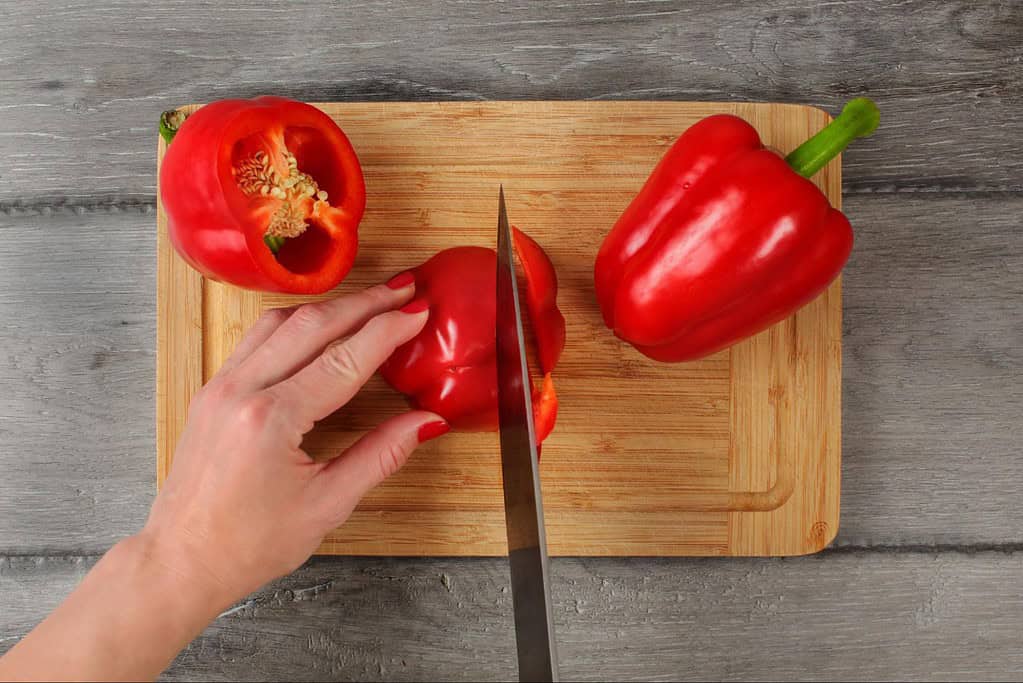
And lastly, prepping the peppers! This isn’t a TV cooking show, but a little care won’t hurt. Dump out the seeds and get chopping – bite-sized pieces are the way to go. You wouldn’t want your fur pal to make a choking gag out of those giant chunks, right? So, ready for a pepper party? Enjoy the crunchy, colorful fun with your fur friend!
Potential Side Effects of Red Peppers on Dogs
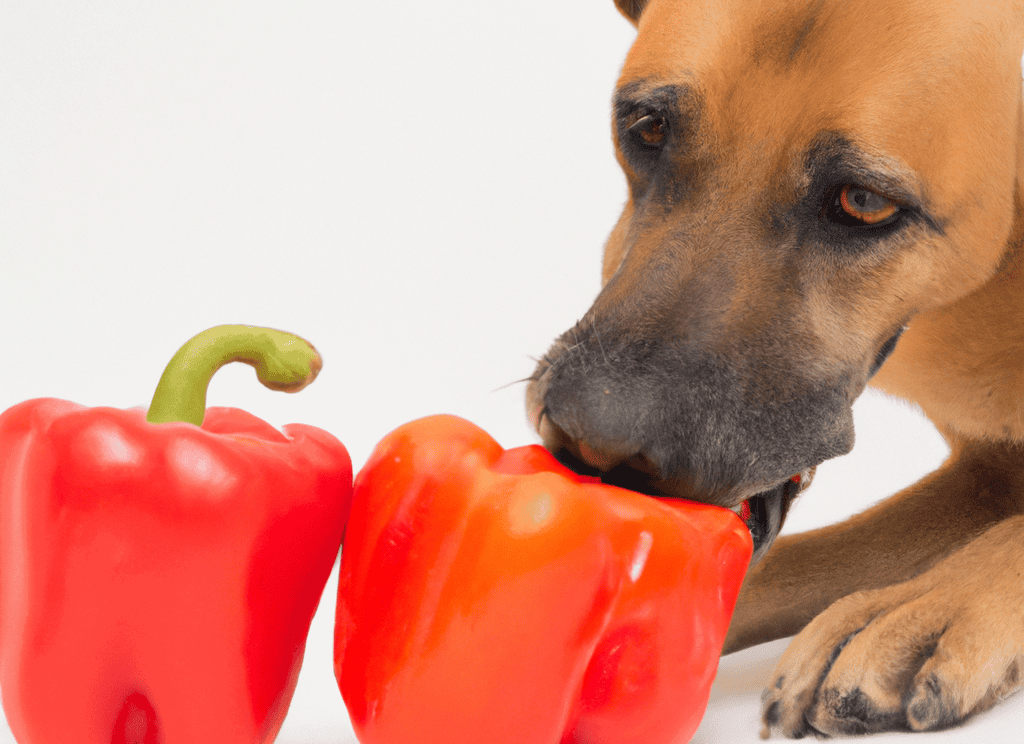
Hey there, dog lover! Does your fur pal give you those big puppy eyes when you’re snacking on some red bell peppers? Well, good news…you can totally share the veggie love with them!
Vitamins, Fiber, And Antioxidants
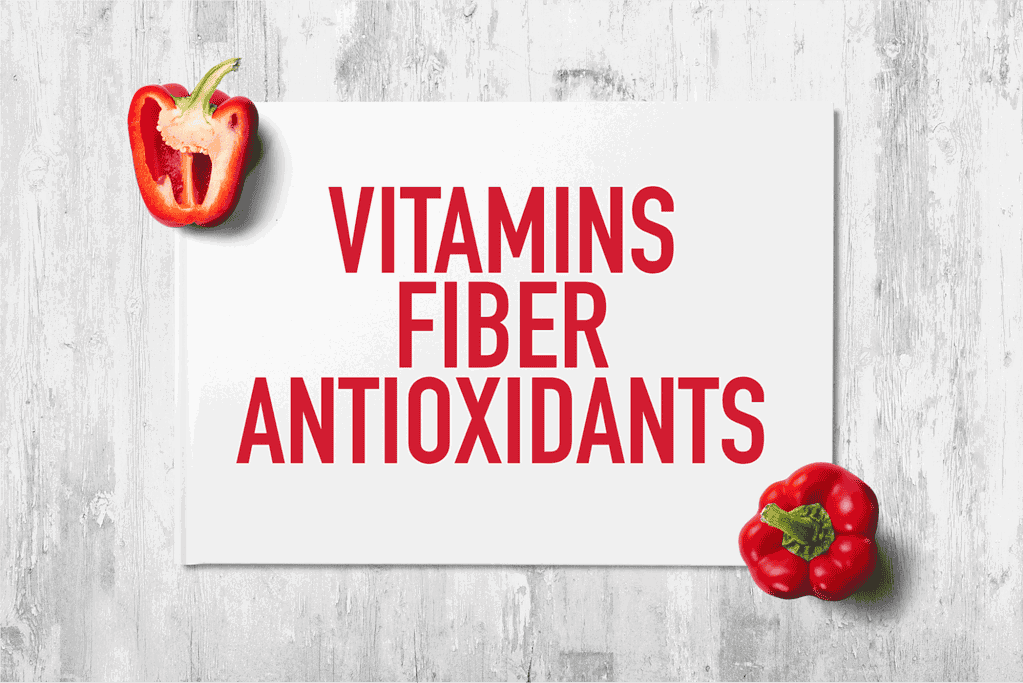
First off, these vibrant veggies are jam-packed with Vitamins A and C, meaning they’re pro-level when it comes to giving your dog’s immune system a boost! Plus, with plenty of fiber and antioxidants, they’re champions at keeping your pooch’s gut as healthy as can be. They’re pretty much a fur buddy’s superfood!
Carotenoids

But it doesn’t end there. Think of red peppers as the mum of the vegetable world—always looking out for your dog’s health, right down to their eyes. They’re loaded with carotenoids, like lutein and beta-carotene, which encourage good vision and even put up a strong fight against age-related eye problems. So yes, red pepper treats help keep those puppy dog eyes clear and bright!
Joint Health

If you have an older dog, arthritis might be lurking around the corner, but our red friend here has got your back. The natural anti-inflammatory properties in red peppers can help soothe joint pain and ease the inflammation associated with arthritis. You could say these veggies are like tiny chiropractors for dogs, minus the scary cracking noises.
Coat Health

And let’s not forget about your dog’s glamorous fur coat. Red peppers might just be your ticket! They’re full of vitamins and minerals that nourish the skin and promote fur growth. With their high concentration of vitamin E, they’re the ultimate beauty secret for a glossy and strong coat.
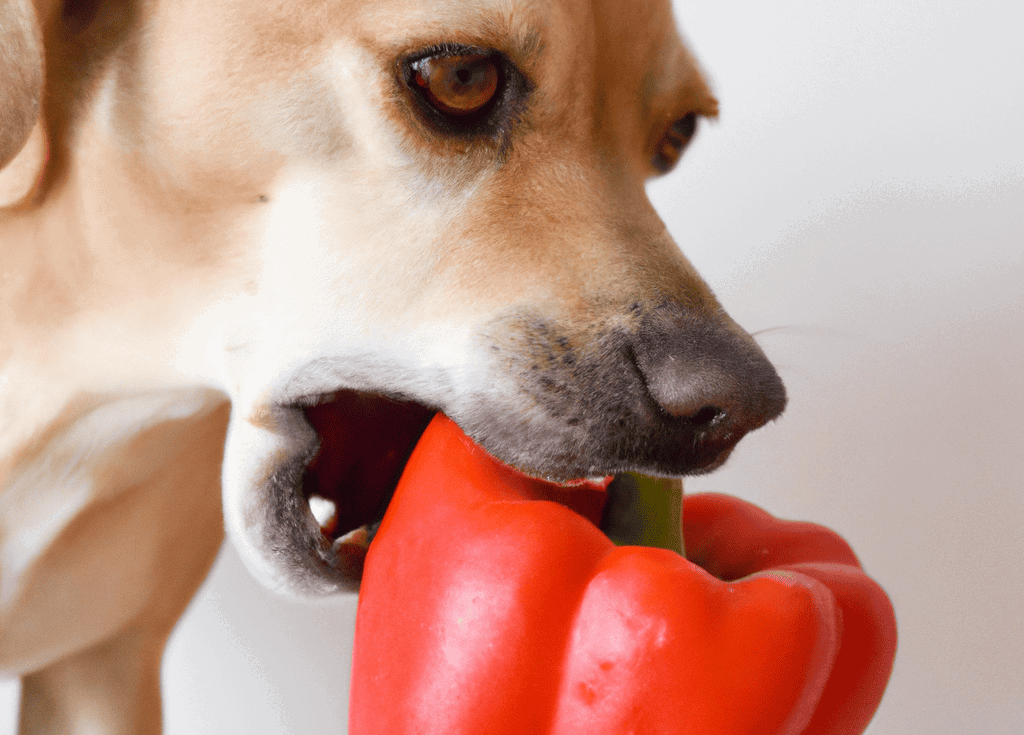
To wrap it up, red bell peppers aren’t just safe for your pooch to munch on—they’re a nutritious snack packed with perks! With benefits from head to tail, including immune support, eye care, joint relief, and a beauty boost for their coat, you can make their mealtime even better, one pepper at a time. As always, make sure you’re feeding these in moderation to keep the treats and the health benefits balanced!
Potential Side Effects of Red Peppers in Dogs
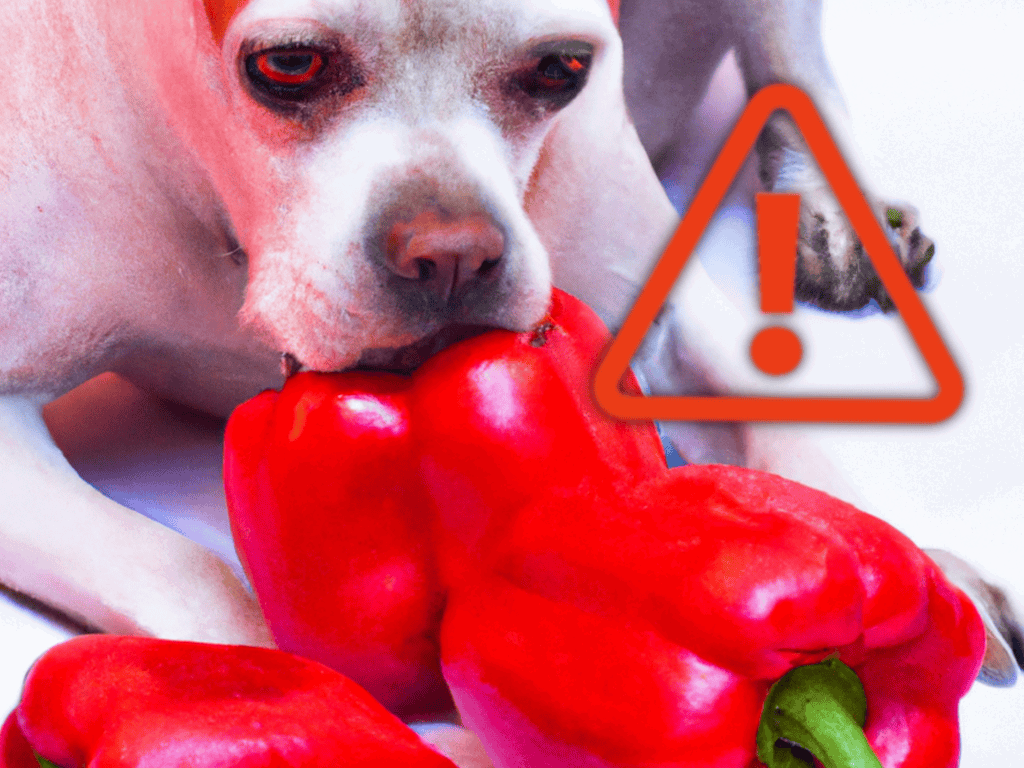
Hey, fur-parent! Ready for some straight talk about those red bell peppers you’re thinking about adding to your pooch’s diet? Brace yourself, it’s not all rosy stuff.
Tummy Troubles

Dogs have a digestive system primarily focused on processing meat, so incorporating too many vegetables into their diet can cause digestive issues. Trying to turn them into veggie enthusiasts might not exactly go down well, with the emphasis on ‘down.’ Yes, we’re talking digestive issues here. This doesn’t mean your fur buddy can’t enjoy their share of red peppers, just keep it within limits.
Diarrhea

One of the likely fallouts of a pepper binge is diarrhea. Yeah, it’s not pleasant for anyone involved. When dogs consume excessive amounts of red bell peppers, their digestive system may struggle with the increase in fiber and other plant matter, resulting in loose stools or diarrhea. This can be uncomfortable for your pet and require more attention to keep their living space clean.
Vomiting

Another adverse reaction in dogs after overeating red pepper is vomiting. Like diarrhea, a dog’s body may have difficulty digesting the peppers in large quantities, causing them to regurgitate the undigested food. This could signal that the dog’s stomach is not reacting well to the peppers or that its body cannot process the excess plant matter.
Capsaicin
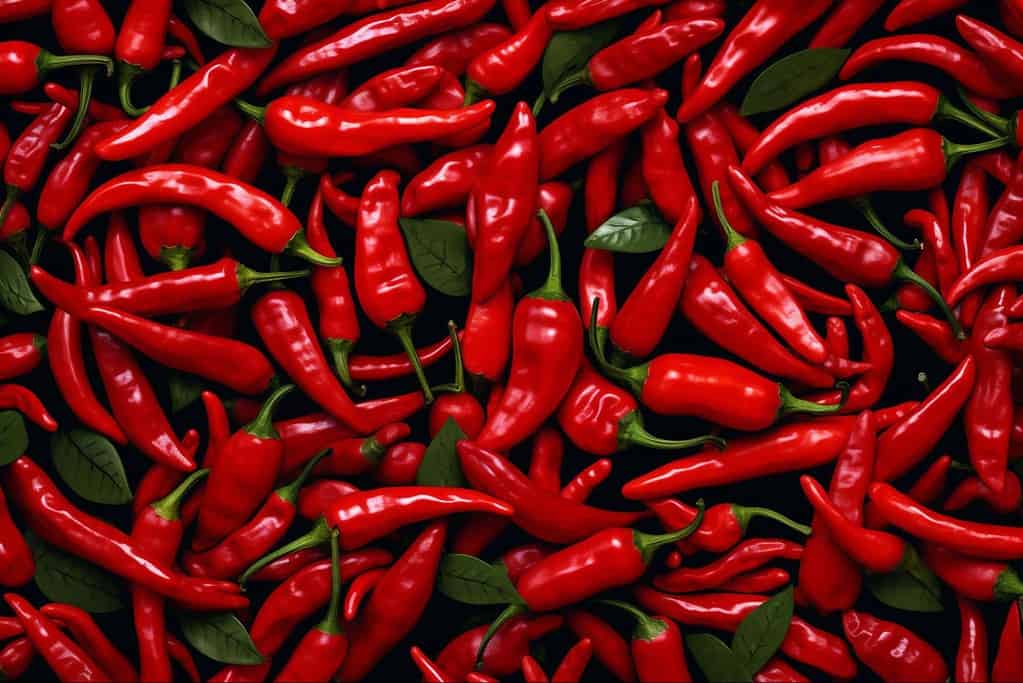
Some red peppers, particularly those with higher concentrations of capsaicin – the compound that creates a sensation of heat – can lead to mouth irritation in dogs. Capsaicin can cause a burning sensation if it comes in contact with the sensitive tissues of a dog’s mouth, leading to pain and discomfort. This issue is more common with spicier peppers rather than milder red bell peppers.
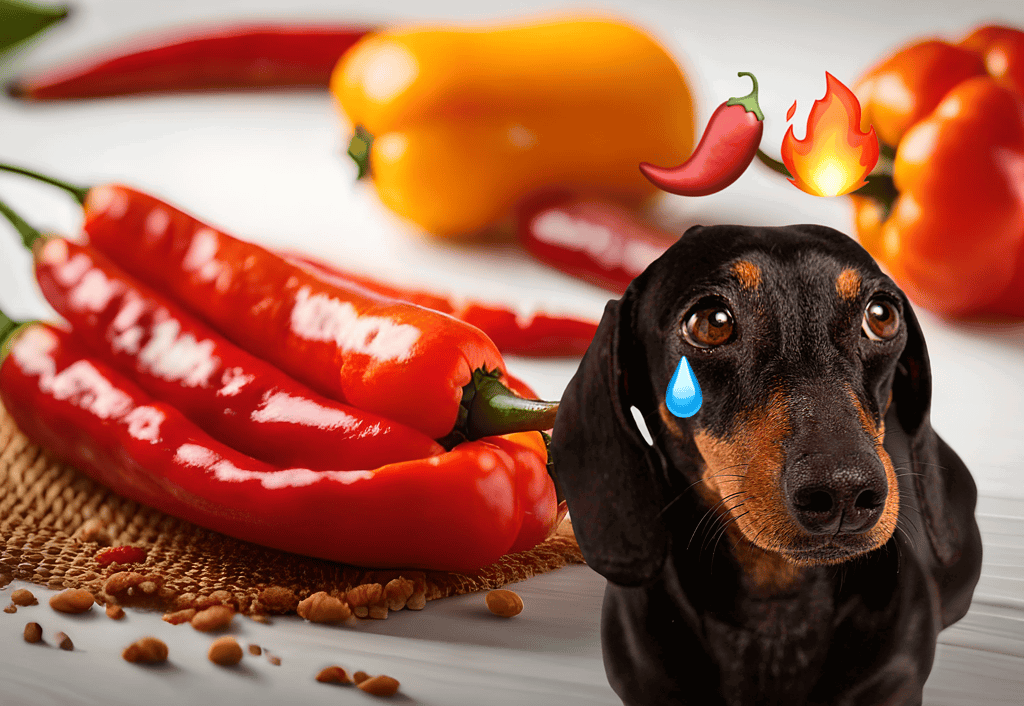
In some rare cases, peppers with high capsaicin levels can be a real bully, leading to oral burns. It’s like an unexpected twist in a horror movie! Keep your pooch clear from hot peppers that pack a capsaicin punch to avoid severe damage to their digestive tract.
In a nutshell, while red bell peppers can make for a tasty treat and offer healthful bonuses for your dog, moderation is the secret sauce. It’s the real deal when it comes to avoiding side effects. Keep an eye on your fur pal after their serving of peppers to make sure they’re handling it well, and your pet’s cute nose will stay happily out of the danger zone!
Enjoying this read?
We publish this content for free to generate interest in our Premium members' area. By subscribing, you can ask the writer any questions related to pet care and this article, get access to 100+ Premium Pet Care Guides and go Ad-Free with DogFix Premium for $2.99.
Preparation of Red Peppers for Dogs

Hey fur-parent, fancy spicing up your dog’s meals and adding a splash of color with some cheeky red peppers? Brilliant idea, but you’ve got to prepare them right for your fur-pal. Here’s the rundown.
Cleaning
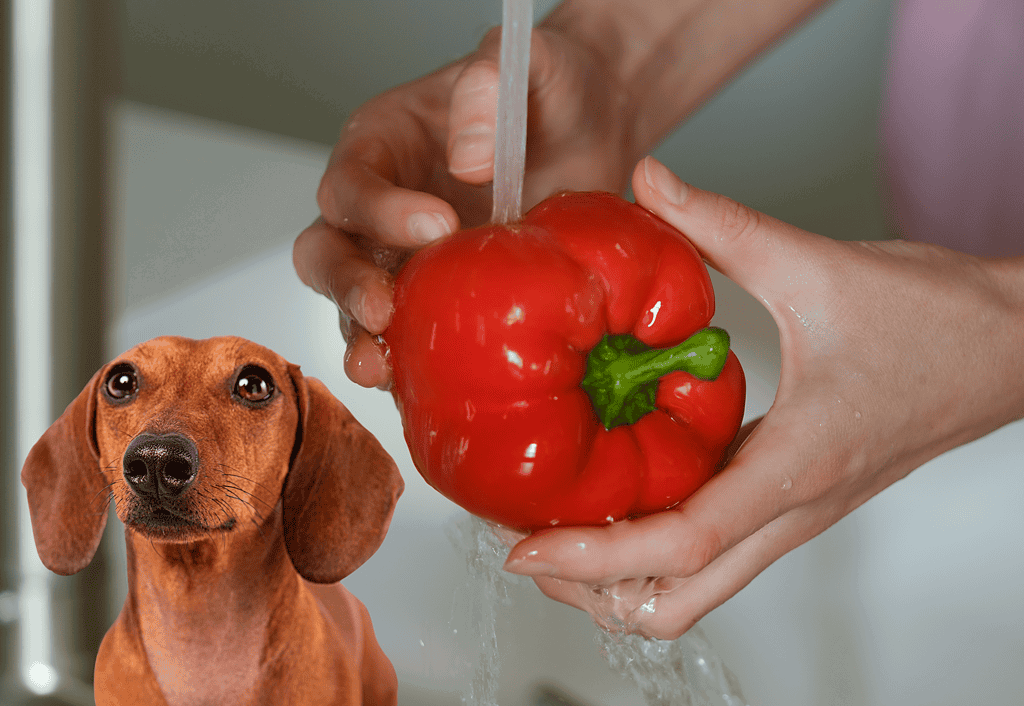
Sure, red peppers are like the healthy multivitamins of the veggie world, but we don’t want tummy grumbles from wrong preparation. Serving up raw peppers? Awesome! Just don’t forget to wash ’em thoroughly so they’re as clean as a shiny new car, totally free from any chemicals or dirt.
Remove Stem And Seeds

Next, you’ve got to remove the stem and seeds. These can be a bit hard to digest, plus you don’t want your dog trying to fetch those things out of their throat. Cut that pepper down to bite-sized pieces just the right size for your fur buddy’s happy chomps. Remember though, veggies are a bonus to your dog’s diet – red peppers, despite their nutritional kick, shouldn’t become the main attraction.
Steaming
If you’d rather cook up those peppers, steaming is your golden path. Besides keeping all those great nutrients, steaming doesn’t add any oils or seasonings that could stage an upset in your dog’s tummy.
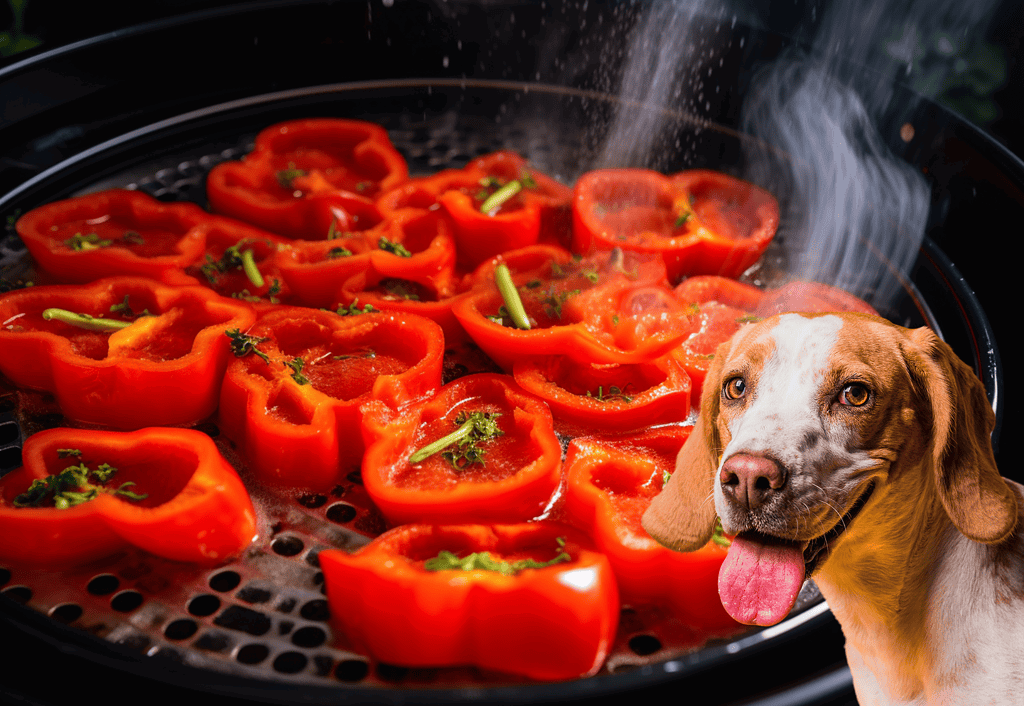
To steam, follow the same drill for serving raw: clean, de-seed, chop, and toss them into a steamer basket. Let the steam work its magic until the peppers are soft enough for your dog to bite without a struggle.
No Hot Spices
Sure, dogs can dig into mild and cooked pepper types like paprika. However, dodge the fiery ones like jalapeños, serranos, and chili powder, as they can cause adverse reactions.
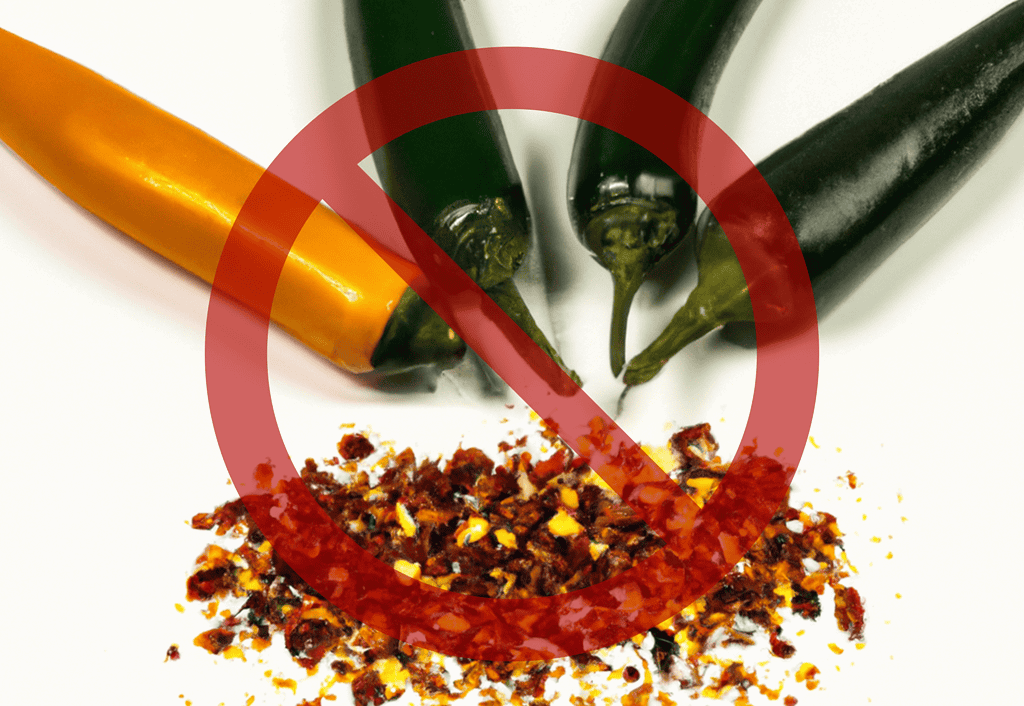
When you are ready to get red peppers in on your dog’s meal routine, start with sample bites and keep an eye out for your pet’s reaction. Should you spot any signs of discomfort or digestion problems, it’s time to hold the peppers and call for backup – your friendly neighborhood vet – for some pro advice.
Other Vegetables Safe for Dogs
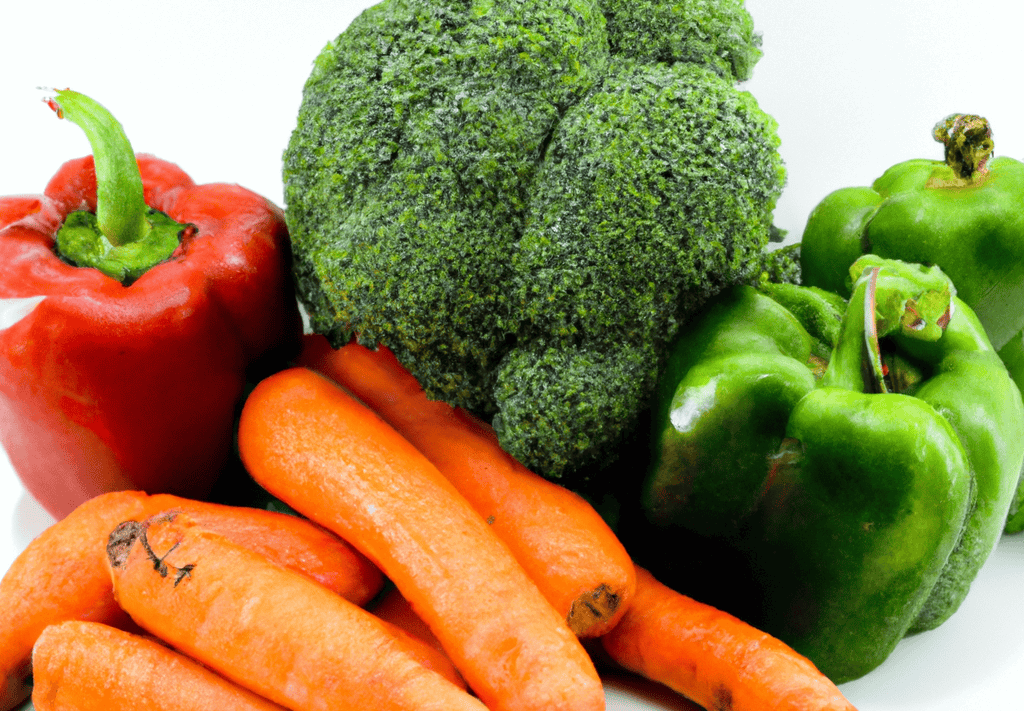
Hey dog-parent, got a veggie-loving fur pal on your hands? If “yes” is your answer, excellent! We already talked about how red peppers make a great snack for your fur buddy. But wait, there’s more! There’s a whole veggie universe your pooch can explore safely.
Bell Peppers

Let’s kick things off with the rest of the bell pepper family. Green and yellow bell peppers are also safe for dogs to consume. Although they may not contain high concentrations of vitamins and antioxidants as red bell peppers, they still offer essential nutrients and provide variety to your dog’s diet.
Broccoli
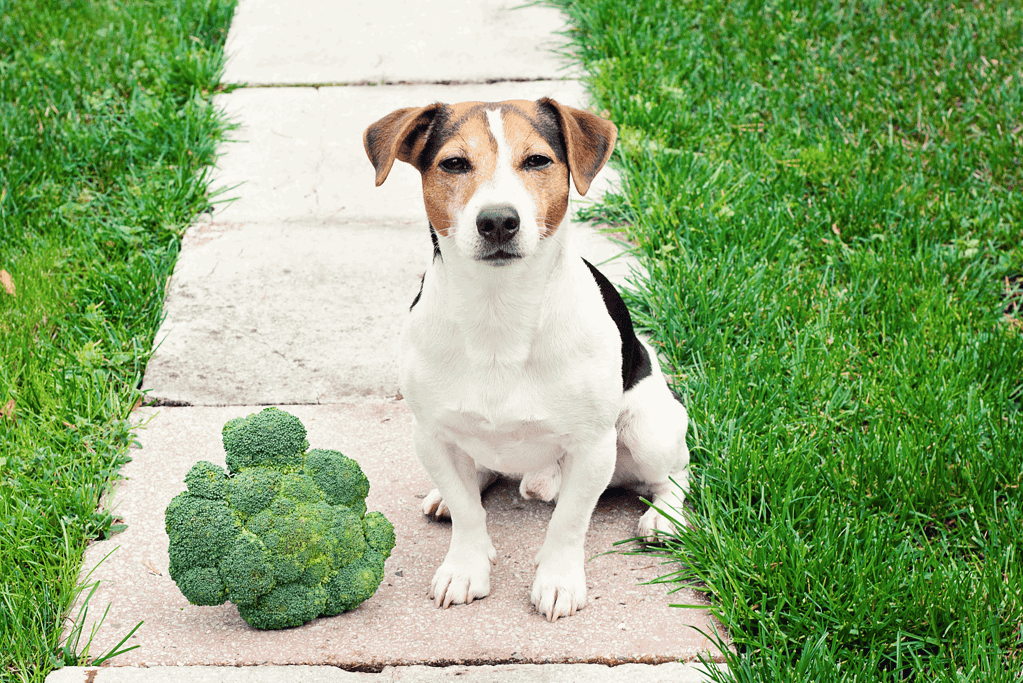
Next up, the magnificent broccoli. Packed with fiber, antioxidants, and vitamins, it’s like a superpower wellness pill. But keep it cool, everything in moderation. It could cause a bit of a gassy situation or an upset tummy when consumed in large amounts. So, keep their size small, introduce it gradually, and observe your doggo’s reaction.
Carrots
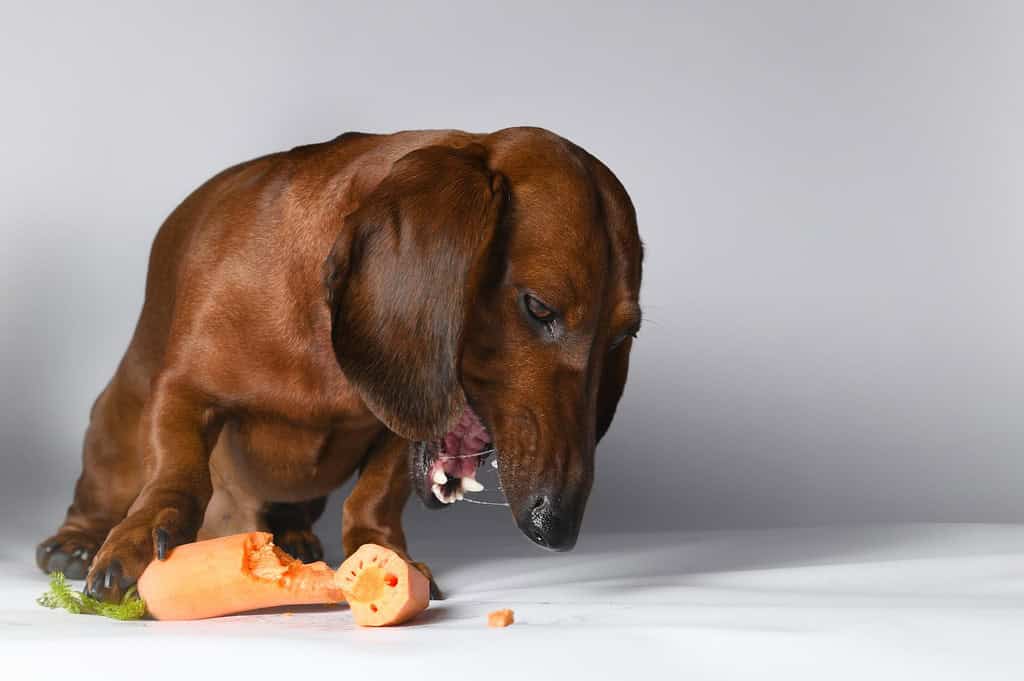
Now, who doesn’t love the satisfying crunch of a carrot? These orange sticks are a nutritious, low-calorie snack that dogs can chew on raw, cooked, or tossed into their main meal.
Feeding your pet a lovely blend of safe and healthy veggies adds a fun mix to their meals and brings in valuable bonuses on the nutrient front. But as the fur parent, you must introduce new foods slowly and keep a keen eye on your pooch for any not-so-pleasant reactions.
Frequently Asked Questions
Are red bell peppers safe for dogs?
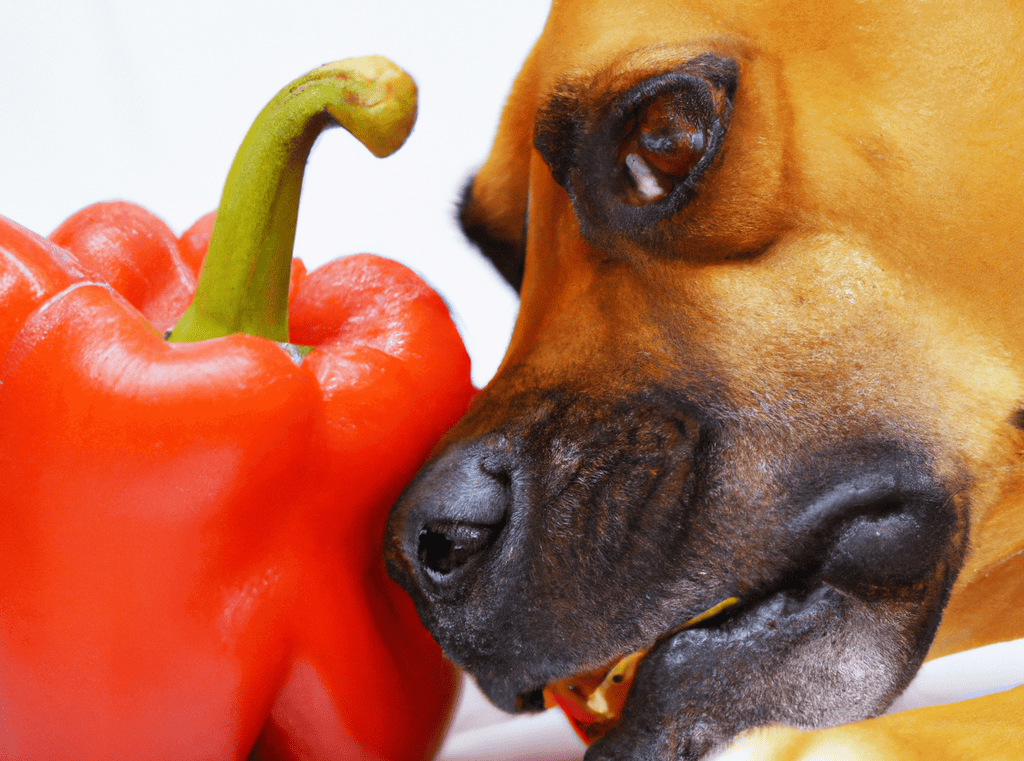
Yep, they’re not just safe, but they’re packed with vitamins, fiber, and antioxidants. Just don’t forget moderation is the key.
What’s so great about red peppers for dogs?
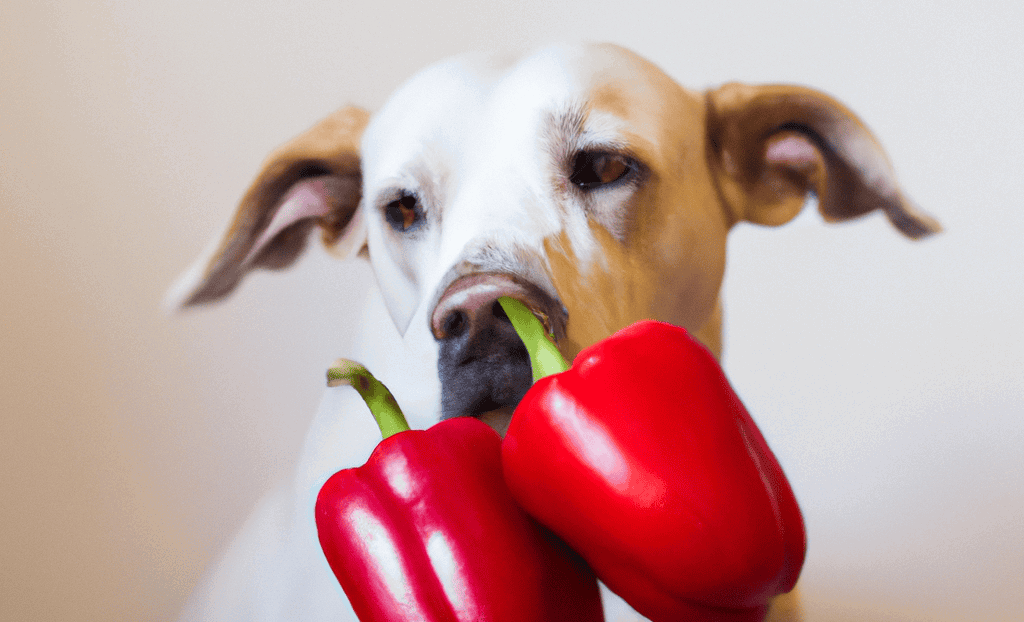
Red peppers are like health confetti for your fur pal. They’re brimming with vitamins A and C, which can help keep your dog’s health in check. Plus, they have fiber and antioxidants to up the health ante.
Any peppers dogs can’t eat?
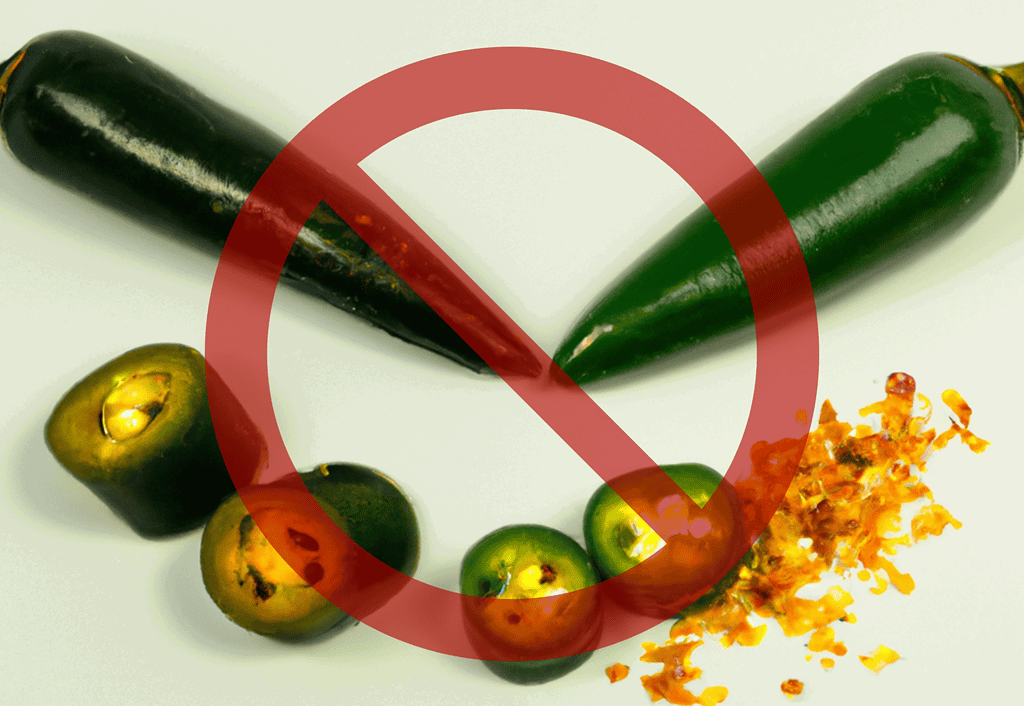
Steer clear of the spicy stuff. I’m talking jalapeños, serranos, and hot chili peppers. These spicy scoundrels can play havoc on your pooch’s tummy.
Can I serve cooked red peppers?
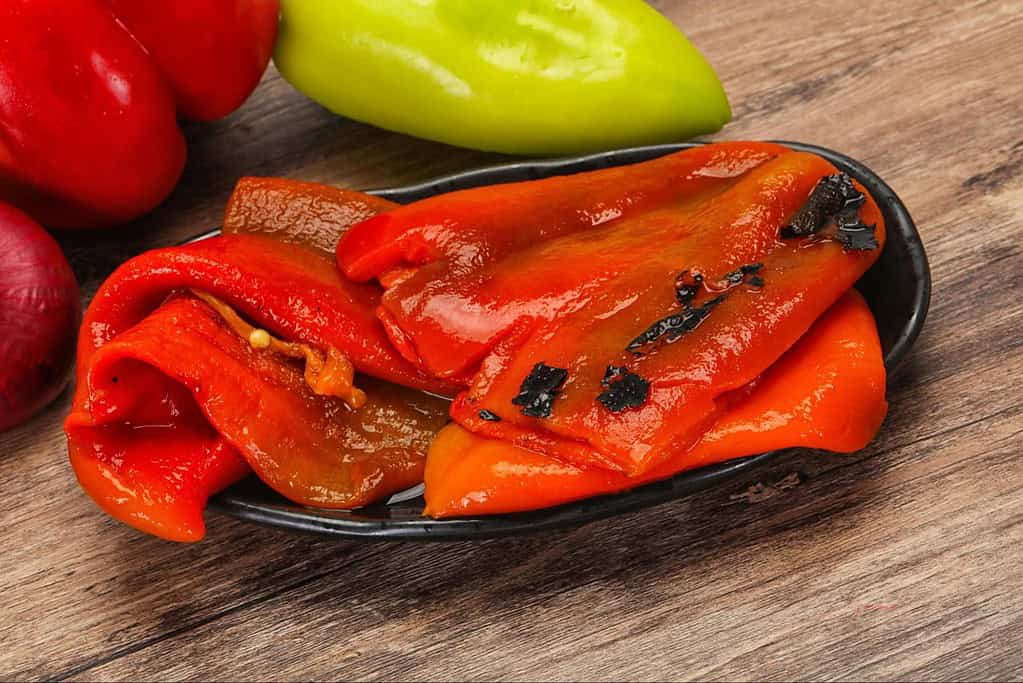
You bet! Just make sure you’ve de-seeded and removed the stems, and haven’t cooked them with anything harmful.
Anything I should watch out for?

If your dog overdoes it on the red peppers, they may end up with an upset tummy or diarrhea. So, remember moderation is key.
How much pepper can my dog eat?

A: It varies. Factors like the size, age, and health of your dog play a role here. A few moderate slices every now and then should be fine. But when in doubt, your vet can provide the best advice on your fur pal’s dietary needs.
Key Takeaways on Dogs And Red Peppers
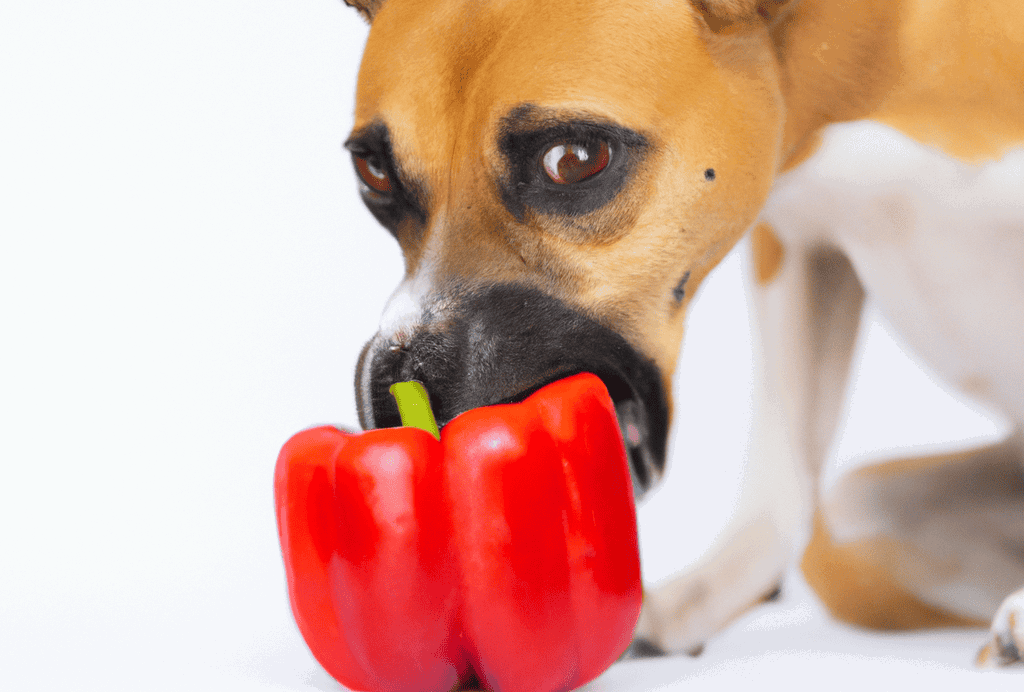
- Red bell peppers are safe and nutritious for dogs when given in moderation
- Providing red bell peppers can offer potential health benefits to dogs
- Proper preparation and portion control are important for safely incorporating red bell peppers into a dog’s diet
